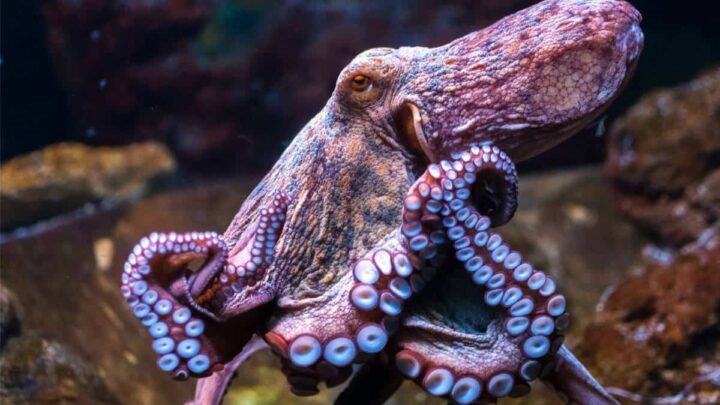Although we have had a significant presence on Earth for thousands of years, history shows that species do not last forever. Spurred by the unknown and unpredictable, a scientist suggests this animal will replace humans as the dominant species on Earth when we disappear.
Humans have been at the center of changes on Earth, with their inventions and communities transforming forests, oceans and even the atmosphere. In fact, it's hard to imagine a future without us.
However, this scenario is both complex and exciting, due to the curiosity of knowing what could happen in our absence.
To Tim Coulsona professor at the University of Oxford who spent years studying biology and evolution, our disappearance could motivate other species to take on a relevant role on Earth.
In your book "The Universal History of Us" (in Portuguese, Our Universal History), the expert traces the entire history of life and focuses on a stunning prediction about what may come next.
One of the main themes involves evolution, which the author describes as the "gradual change of living organisms over time as they become better adapted to their environments."

The author emphasizes that "most mutations are harmful, but some provide a survival or reproduction advantage."
Because genes are heritable, beneficial mutations become more common over generations. In Coulson's opinion, mutations advance life, despite the risks.
In any case, no species is permanent, as "extinction is the destiny of all species, including humans, although we hope that our demise is far in the future."
With many years of study, Coulson began to wonder "what species could take our place if humans and our closest relatives, the great apes, went extinct."

Once humans were eliminated, Earth's ecosystems could regain balance, allowing new creatures to fill the empty spaces.
Already perspective According to Coulson, "new forms of intelligence and complexity can emerge unexpectedly", opening the possibility that a future species could present solutions and technologies different from those we can currently imagine.
Going beyond primates, scientist suggests an aquatic species
Although primates are the guess of many, Coulson points to octopuses, highlighting their intelligence and ability to adapt.
Their ability to solve complex problems, communicate with each other through flashes of color and manipulate objects suggests that, given the right environmental conditions, they could evolve into a civilizational species.
He defended Coulson, adding that "his advanced neural structure, decentralized nervous system, and remarkable problem-solving ability make several octopus species well adapted to an unpredictable world."
In some research centers, some octopuses even escape their tanks at night, visiting their neighbors' tanks, believe it or not.

Regarding the environment in which octopuses live, it is not surprising that, without us, the oceans could become even more important for the future of the Earth.
Although land creatures typically occupy top positions on the food chain, Coulson cites a critical challenge for octopuses.
Octopuses are unlikely to adapt to life on land due to their lack of a skeleton, which makes it difficult for them to move quickly and agilely outside of the water.
With evolutionary advances, it is possible, if not likely, that they could develop ways to breathe outside of water and eventually hunt land animals such as deer, sheep and other mammals, assuming they survived the catastrophic event that led to the extinction of humans.
From his perspective, which understands how evolution can lead life along paths that, at first, seem impossible, octopuses could build underwater habitats, find new ways of interacting with the environment around them and, one day, even go beyond the water.
Would octopuses build vast underwater cities and come ashore with breathing apparatus to kill a deer? We have no way of knowing.
In fact, no one predicted that ancient primates would evolve into bipedal humans capable of creating technology.

For Coulson, "random mutations, unforeseen extinction events and population blockades can significantly influence the trajectory of evolution."
The future of life on Earth is shaped by countless variables, but could octopuses replace humans, and potentially primates as well, if they went extinct? Undoubtedly. They could become the brains of the sea.
Not seeing this scenario as inevitable, the scientist suggests it, according to pressas a possibility for nature to reorganize itself in our absence, highlighting, in his book, the ability of evolution to produce forms and behaviors that seem strange, from our perspective.
Also read:
Source: pplware.sapo.pt


